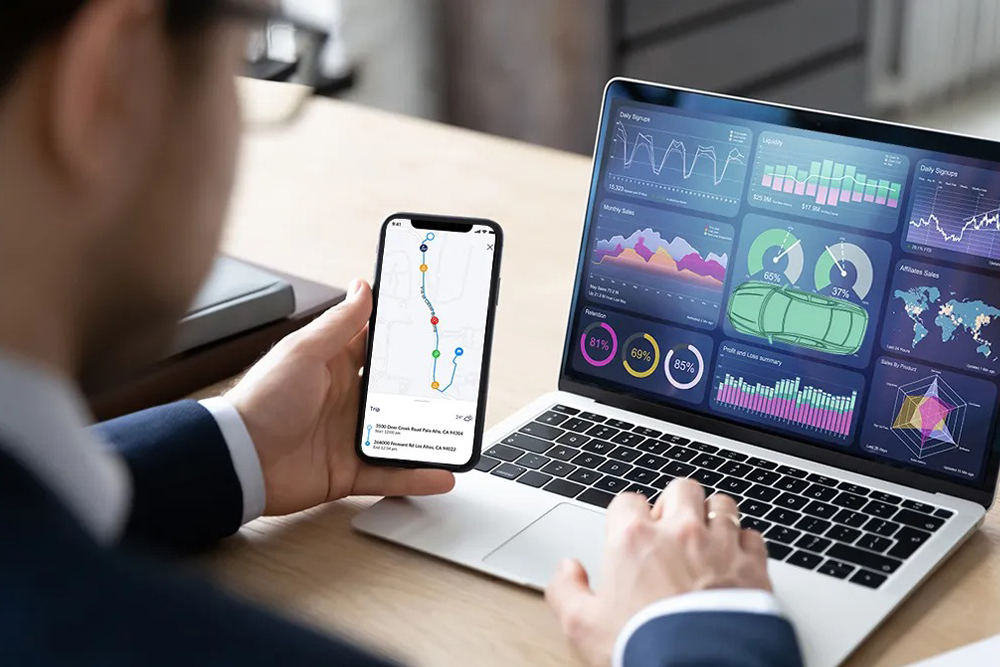A successful telematics program should be more than simply collecting and presenting driving data and a driver score.
The highest quality telematics programs are built from a solid understanding of the auto insurance industry and a deep grounding in both the enabling technologies and the understanding and know-how to truly engage and motivate drivers to adopt safer driving behaviors.
In today’s volatile economic climate, many insurers are re-evaluating the worth of their telematics program, but afraid that by switching providers they will lose all their work in obtaining data and need to start over. Not so. The real differentiators between telematics partners become clear when considering their range of capabilities. Certain qualities distinguish partners who can offer mediocre programs from those that are truly outstanding and can obtain business objectives—and more.
The following 5 qualities are inherent in the highest quality telematics partners. If these qualities are lacking, it suggests a strong justification for switching telematics service providers (TSPs) to gain the full business value that telematics can deliver.
1. Top-notch TSPs offer configurable and adaptive scoring

Accurate data has the potential to capture a profile of a driver’s behavior behind the wheel, but without the ability to tailor this data to scoring that reflects the intent of the insurer, much of the value is lost. “Scoring is boring” if it is not done right and does not engage policyholders to improve their driving behavior.
- Is the scoring model flexible enough to capture the driver behavior that will result in a successful program?
- Can the data handling be fine-tuned to precisely communicate the results that you want?
- Are the scores optimized to meet end-user expectations, as well as the needs of the actuary?
If a telematics provider forces insurers into a one-size fits all scoring model that misses the needs of the actuarial team and offers little motivation for policyholders to improve driving behavior, it is grounds for switching.
2. The TSP offers flexible contract terms and adjustable pricing models suitable for your business needs.

Being locked into a contractually rigid telematics program that cannot be adjusted to fit a company’s evolving requirements can generate ongoing dissatisfaction with a TSP. A tailored approach—crafted to meet individual strategic objectives—is more likely to serve your company interest over a prolonged engagement. Consider whether a program can be enhanced over time with new services, optimized features, and add-on options. Cookie-cutter solutions that are offered by some TSPs are unlikely to fulfill insurer expectations and if contractual obligations prevent adjusting the terms of the program, the business value of the program is lessened. Does the TSP know enough about your business to realistically set pricing and terms suitable to your unique market needs? Look for seasoned veterans of the insurance industry as staff members of the TSP. Their insights and expertise can be a guiding force in shaping a telematics program to real-world challenges faced by auto insurers.
3. An internal team is available to work with you to optimize the program over time.

Long-term success of a telematics program requires skilled support—starting from the initial go-to-market proposition through the periodic tuning and modification of the program to ensure it’s optimizing downloads, sign-ups and activations without increasing support calls. This level of support can be crucial to the overall success of a program. Having a dedicated internal team working with you helps identify worthwhile program changes, integrate new ideas, and ensure that important aspects of the program are delivering results as expected. If a TSP doesn’t offer this level of team support, consider switching.
4. TSP supports multiple data collection techniques.

Data collection technology is rapidly growing more sophisticated and advanced functionality for telematics continues to evolve. It’s a warning signal if a TSP is not prepared to incorporate the latest technologies and data collection methods. OEMs are adding built-in telematics capabilities to vehicles. Mobile phones are gaining features that extend telematics to encompass new services. Claims handling is becoming increasingly automated by accessing telematics data. A top-notch TSP program should include the flexibility to accommodate emerging technologies, to meet the spectrum of data collection methods across your book of business, and to offer you fluid access to benefits that can be gained from future breakthroughs. Ask yourself the question: Do you want to be tied down with a point solution that will inevitably be obsolete or invest in a platform-based solution that can accommodate the future of any data collection technology?
5. A quality TSP can help you fully optimize your end user engagement.

Optimizing user engagement—ideally with the help of a dedicated internal team at your TSP—ensures you’re getting users to improve their driver behavior and building long-term value for your program. Engagement is the difference between programs that succeed or fail—period. An experienced TSP can guide the user journey and fully personalize the experience—ensuring you’re getting the most of your technology purchase. This can include ongoing A/B testing to ensure rewards and coaching are working well to improve driving behavior and gain the anticipated results. Lack of attention to this important part of any telematics program is reason to consider switching TSPs. If your program does not engage your users to improve driving behavior, your telematics program will experience churn as policyholders grow dissatisfied with the services.
Choosing Telematics Services that Amplify Your Success.

Beyond basic telematics data processing and scoring, there exists another realm that can deliver a wealth of useful, complementary services and support.
Signs of a TSP’s intent to address the large-scale challenges of the auto insurance sector include:
- Innovative methods to increase policyholder engagement, strengthening auto policyholder loyalty and retention
- Coaching techniques and rewards that support safer driving without being annoying and intrusive
- Flexibility to adapt and configure a program to suit individual preferences and priorities
- Features that automate claims handling using the latest technology
Choosing a TSP with a program that adapts to your needs and preferences can be a path to long-term success with telematics technology, rather than being saddled with the limited options of an inflexible commercial arrangement and one-size-fits-all model.
About IMS
IMS (Insurance & Mobility Solutions) is a vehicle and driving data business, delivering enterprise solutions to global insurers, mobility operators and governments. The IMS DriveSync platform provides the capability for customers to improve their approach to pricing, customer engagement, risk management and claims handling by leveraging telematics data from any source – smartphone apps, aftermarket hardware and OEM embedded units. The company, with offices across the UK, Europe and North America, has analyzed over 15 billion driving miles and its algorithms are fed by trillions of data points each day.
Please do not hesitate to reach out to contact us for any assistance or if you have any questions. Our dedicated team of experts is here to support you every step of the way.

